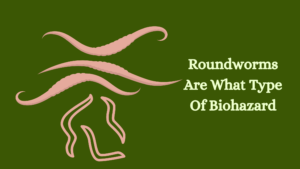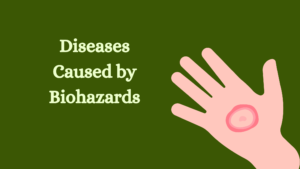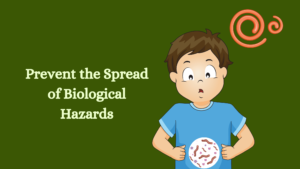
Roundworms are a type of biohazard that can cause serious health problems in humans and animals. Biohazards are biological agents or substances that have the potential to harm human health, animals, or the environment. In this article, we will explore the different types of biohazards and focus specifically on roundworms, including the diseases they can cause, how to contract them, and how to prevent their spread. Understanding the potential risks posed by roundworms and other biohazards is important for maintaining public health and safety.
Types of Biohazards
There are several types of biohazards, including viruses, bacteria, fungi, parasites, toxins, and other biological materials. Each type of biohazard has unique characteristics and can cause a range of health problems. Understanding the different types of biohazards is important for identifying potential risks and taking appropriate precautions to prevent their spread. In the following sections, we will explore each type of biohazard in more detail and discuss the diseases they can cause.
Diseases Caused by Biohazards

Roundworms are one type of biohazard that can cause a variety of diseases in humans and animals. These parasitic worms live in the intestines of infected animals and can be transmitted to humans through contaminated food, water, or soil. Roundworm infections can cause a range of symptoms, including abdominal pain, diarrhea, fatigue, and weight loss.
Other biohazards can also cause serious diseases. For example, bacteria such as Salmonella and E. coli can cause food poisoning, while viruses such as HIV and hepatitis can cause life-threatening infections. Fungi can cause respiratory infections and allergic reactions, and toxins produced by mold and other organisms can cause a range of health problems.
How to Contract Parasites
Parasites, including roundworms, can be contracted in a number of ways. Eating undercooked or raw meat from infected animals, drinking contaminated water, or touching contaminated soil can all lead to parasitic infections. In addition, contact with infected animals or their feces can also transmit parasites to humans.
It is important to practice good hygiene and food safety measures to reduce the risk of contracting parasites. This includes washing your hands regularly, cooking meat to the appropriate temperature, and avoiding contact with animals that may be infected.
Internal Parasitic Infections
Roundworms and other parasites can cause internal infections that can be difficult to diagnose and treat. These infections can cause a range of symptoms, including abdominal pain, diarrhea, and fatigue. In some cases, parasitic infections can lead to more serious health problems, such as liver damage or neurological damage.
If you suspect you may have a parasitic infection, it is important to seek medical attention right away. Your doctor can perform tests to diagnose the infection and prescribe appropriate treatment.
How Biohazards Spread
Biohazards can spread in a number of ways. Direct contact with an infected person or animal can transmit the biohazard through bodily fluids, such as blood, saliva, or urine. In addition, biohazards can be transmitted through contaminated food, water, or soil.
Biohazards can also spread through the air, particularly if they are inhaled in droplets or aerosols. This is a concern with certain viruses, such as the flu and COVID-19, which can be transmitted through the air when infected individuals cough or sneeze.
How to Prevent the Spread of Biological Hazards

There are several steps individuals and organizations can take to prevent the spread of biological hazards. These include practicing good hygiene, such as washing your hands regularly and covering your mouth and nose when you cough or sneeze.
In addition, food safety measures can help prevent the spread of biohazards through contaminated food. This includes cooking meat to the appropriate temperature, washing fruits and vegetables before eating them, and avoiding eating raw or undercooked meat.
Organizations such as hospitals and laboratories must also take steps to prevent the spread of biohazards. This includes following strict safety protocols, such as wearing protective clothing and using proper disinfection procedures.
Conclusion
Roundworms are a type of biohazard that can cause serious health problems in humans and animals. Biohazards can include viruses, bacteria, fungi, parasites, toxins, and other biological materials. It is important to practice good hygiene and food safety measures to prevent the spread of biohazards. This includes washing your hands regularly, cooking meat to the appropriate temperature, and avoiding contact with infected animals or their feces.
If you suspect you may have a parasitic infection or have been exposed to a biohazard, seek medical attention right away. Early diagnosis and treatment can help prevent the spread of the infection and minimize the risk of serious health problems.
It is also important to stay informed about current outbreaks and take appropriate precautions. This includes following public health guidelines, such as wearing masks and social distancing during pandemics, and staying up to date on vaccine recommendations.
Overall, understanding the types of biohazards and how they spread can help individuals and organizations take appropriate measures to prevent the spread of infection and protect public health.